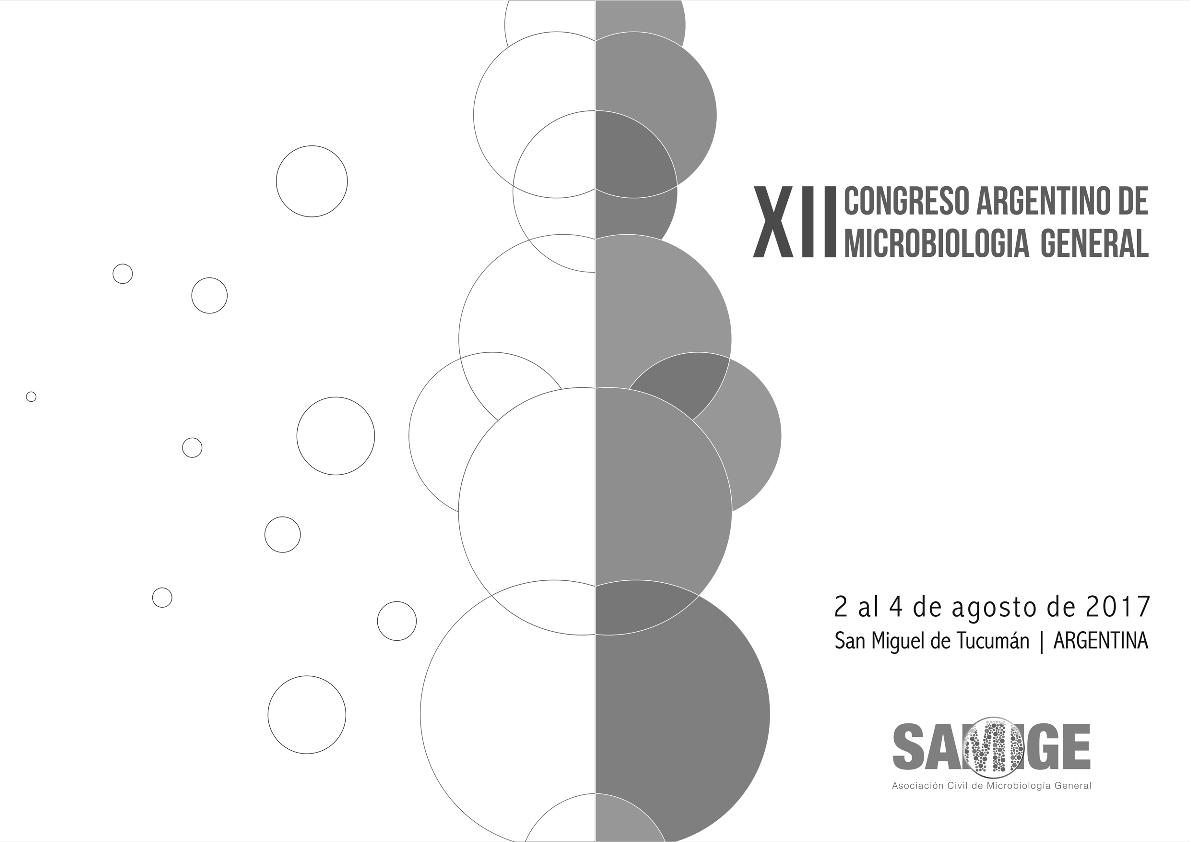Mostrar el registro sencillo del ítem
dc.contributor.author
Lopez, Veronica Alejandra

dc.contributor.author
Kurth, Daniel German

dc.contributor.author
Farias, Maria Eugenia

dc.date.available
2023-02-15T16:58:22Z
dc.date.issued
2017
dc.identifier.citation
Characterization of Mineral-Associated Microbial Ecosystems (EMAM) in Lagoons of the Andean Puna; XII Congreso Argentino de Micorbiología General; San Miguel de Tucuman; Argentina; 2017; 1-2
dc.identifier.uri
http://hdl.handle.net/11336/188139
dc.description.abstract
The Andean Microbial Ecosystems Associated with Minerals (EMAM) are associations of bacteria, cyanobacteria and Haloarqueas that influence or induce the precipitation of minerals in lagoons, hydrothermal vents, fumaroles of volcanoes and Puna salares. They include microbial mats, microbialites, biofilms and endoevaporites. Those in the Puna are the highest described so far and due to the extreme conditions that give rise to altitude (high UV radiation, low O2 pressure, abrupt temperature changes, oligotrophy, etc.) these ecosystems are developed in The environment most similar to the primitive earth that is known in the planet. The general objective of this work is to characterize microbial ecosystems of different lagoons (Ojos de campo, Pozo Bravo, and a fumarola near the Diamond Lagoon) of height of the province of Catamarca, Argentina, including microbial mats and microbialites of some sites not previously studied. The biological studies will be oriented to the description of the bacterial biodiversity of these systems.DNA isolation of the samples were performed using different protocols, including CTAB, methods used for saline sediments, and kits for processing microbial mats (MoBIO). Subsequently a DNA quality analysis was performed by UV absorption spectroscopy, using ELISA (? Tag). The success of the methods employed was confirmed by PCR reactions with oligonucleotides to amplify the 16S rDNA gene (F27 and R1492). Subsequently, NGS sequencing will be done with the Macrogen supplier. From the samples obtained, libraries of amplicons from the V4 region of the 16S rDNA gene, using the Bakt-341F and Bakt_805R oligonucleotides were constructed. These libraries were sequenced on the Illumina platform. Diversity data by 16S rDNA were analyzed using the QIIME software. This is an open source software package for comparison and analysis of microbial communities. It allows to select the sequences, to group them in OTUs, to perform the taxonomic assignment, to build phylogenetic trees, and to carry out comparative studies among the communities with statistical support. This analysis allowed to define the biodiversity of the microbial ecosystems under study. Parallel analysis of other sequences of environments of the Puna allowed to obtain a more global panorama of relations between genders or phyla and morphology of the ecosystems. Taxonomic diversity is related to multiple factors, in addition to the morphology of the ecosystem. The relationship with the physicochemical parameters was studied using multivariate analysis tools, including analysis of major components, and canonical correspondence.The results indicate the presence of archaea and bacteria in these samples. A comparison of the study environments with other Puna environments previously analyzed shows that they are grouped with other microbial mats, differentiating them from other microbial communities with structures such as evaporites, but a clear difference is not seen with the microbialites. Some specific groups are more abundant in evaporite mats, such as the genus Salinivibrio. Microbial mats are divided into two classes. In the first group, are abundant Alphaproteobacterias of the family Rhodobacteraceae and Gammaproteobacterias of the family Marinicellaceae, whereas in the second group are important Deltaproteobacterias of the family Desulfobacteraceae.This work represents a new contribution to the bioprospecting of Andean Puna environments, and will allow studies to be deepened in selected environments.
dc.format
application/pdf
dc.language.iso
eng
dc.publisher
Asociación Argentina de Microbiología

dc.rights
info:eu-repo/semantics/openAccess
dc.rights.uri
https://creativecommons.org/licenses/by-nc-sa/2.5/ar/
dc.subject
MINERAL-ASSOCIATED MICROBIAL ECOSYSTEMS
dc.subject
MICROBIAL MATS
dc.subject
BACTERIAL BIODIVERSITY
dc.subject
PUNA ENVIRONMENT
dc.subject.classification
Biología Celular, Microbiología

dc.subject.classification
Ciencias Biológicas

dc.subject.classification
CIENCIAS NATURALES Y EXACTAS

dc.title
Characterization of Mineral-Associated Microbial Ecosystems (EMAM) in Lagoons of the Andean Puna
dc.type
info:eu-repo/semantics/publishedVersion
dc.type
info:eu-repo/semantics/conferenceObject
dc.type
info:ar-repo/semantics/documento de conferencia
dc.date.updated
2023-02-10T17:53:21Z
dc.journal.pagination
1-2
dc.journal.pais
Argentina

dc.journal.ciudad
San miguel de Tucuman
dc.description.fil
Fil: Lopez, Veronica Alejandra. Universidad Nacional de Tucumán. Facultad de Bioquímica, Química y Farmacia; Argentina. Consejo Nacional de Investigaciones Científicas y Técnicas. Centro Científico Tecnológico Conicet - Tucumán; Argentina
dc.description.fil
Fil: Kurth, Daniel German. Consejo Nacional de Investigaciones Científicas y Técnicas. Centro Científico Tecnológico Conicet - Tucumán. Planta Piloto de Procesos Industriales Microbiológicos; Argentina
dc.description.fil
Fil: Farias, Maria Eugenia. Consejo Nacional de Investigaciones Científicas y Técnicas. Centro Científico Tecnológico Conicet - Tucumán. Planta Piloto de Procesos Industriales Microbiológicos; Argentina
dc.relation.alternativeid
info:eu-repo/semantics/altIdentifier/url/http://www.samige.org.ar/admin/news/files/108-Libro%20SAMIGE%202017.pdf
dc.conicet.rol
Autor

dc.conicet.rol
Autor

dc.conicet.rol
Autor

dc.coverage
Internacional
dc.type.subtype
Congreso
dc.description.nombreEvento
XII Congreso Argentino de Micorbiología General
dc.date.evento
2017-08-02
dc.description.ciudadEvento
San Miguel de Tucuman
dc.description.paisEvento
Argentina

dc.type.publicacion
Book
dc.description.institucionOrganizadora
Asociación Argentina de Microbiología
dc.source.libro
XII Congreso Argentino de Micorbiología General
dc.date.eventoHasta
2017-08-04
dc.type
Congreso
Archivos asociados
